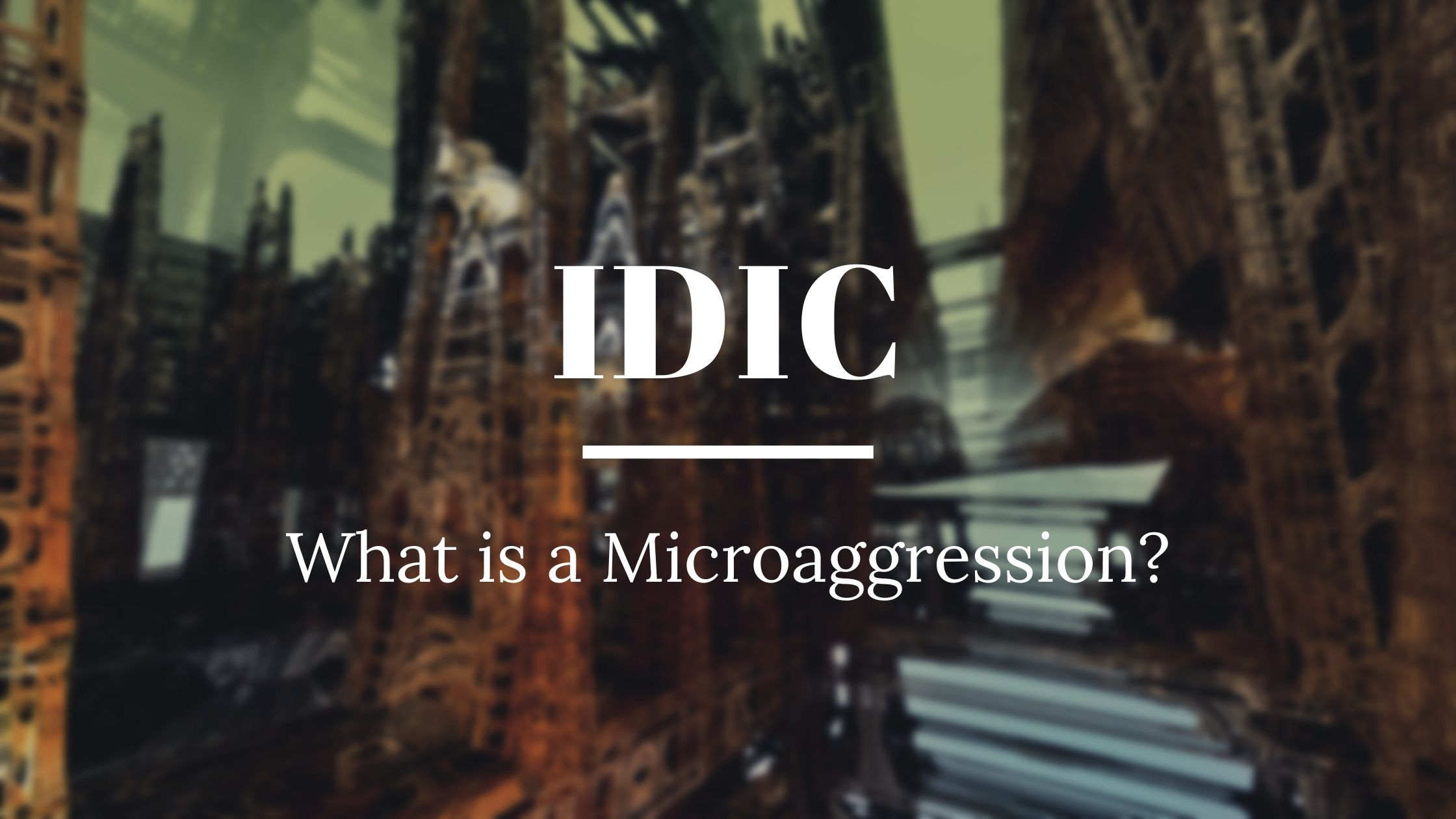Greetings STARFLEET,
In our quest to support a more inclusive environment, today’s discussion is on microaggressions. This common word gets thrown around a lot, but what does it actually mean, and how do we do better?
The Cambridge Dictionary defines a microaggression as “a small act or remark that makes someone feel insulted or treated badly because of their race, sex, etc., even though the insult, etc. may not have been intended, and that can combine with other similar acts or remarks over time to cause emotional harm.”
For a more relevant example, let’s look at the one Ijeoma Oluo uses in her book So You Want to Talk About Race when discussing systemic racism. Imagine walking down the street, and every so often, someone punches you in the arm. You have no way of knowing if it was deliberate (active racism) or if it was just someone gesticulating wildly (microaggression). If you confront them, chances are they will deny that their actions were that bad and gloss over the issue of how people randomly punching you in the arm is a major problem no matter their motivations.
- constantly pointing out people with different hair textures
- “harmless” uninvited flirting
- implying that an older individual must have decreased faculties
- asking a pregnant person how they plan to take care of the baby
- the only wheelchair ramp into a building placed by the dumpster
- implying someone does not belong in a given space
- not using inclusive pronouns (i.e., ‘ladies and gentlemen’ instead of ‘everyone’)
Microaggressions are not restricted to race, and they’re all something we need to address as a society. These are the everyday occurrences that make people’s lives a little (or a lot) harder. It’s also a cumulative weight that does not reset overnight on the individuals experiencing microaggressions.
The answer is not telling people to get thicker skin. Instead, it’s angling for systemic change that starts from within ourselves. We all deserve to live in a society that welcomes us and where everyone has the equity they need to live a full life. It’s going to take work to get there.
Microaggressions take many forms and happen for many reasons. Unfortunately, even the most conscious of activists can still say the wrong thing. It’s a conscious work in progress where everyone must be willing to learn. Active attention and education will make our organization more welcoming to everyone, from our chat rooms to our event organization.
Be Kind, STARFLEET.


Well put.
I myself wasn’t aware of microaggressions until fairly recently. They’re easy things to overlook if they don’t apply to you or if you’ve just heard them so much that you don’t even process what you’re hearing anymore.
Once you see microaggressions for what they are and recognize some of the most common ones you begin to realize just how pervasive they are in our society. And maybe, just maybe, you’ll be that much closer to making Gene’s vision of the future, one where equity is the norm, happen.